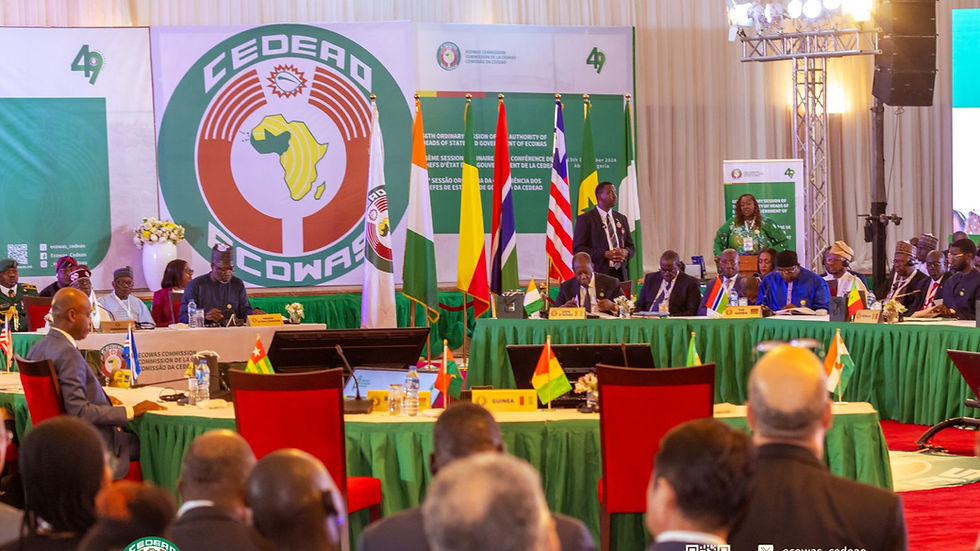Ghana on the Verge of Decriminalising All Illegal Drug Use
- WADPN

- Nov 11, 2016
- 3 min read

The Ghanaian government could be set to decriminalise the personal possession and use of all illegal drugs in a groundbreaking move for drug policy in the region.
The Narcotics Commission Bill, which has already passed the Second Reading stage in the Ghanaian Parliament, will be voted on in December when parliamentarians reconvene. Civil society groups are confident that the bill will pass without resistance or significant amendments.
Under the prospective legislation, people will not face criminal sanctions for possessing drugs for personal use; however, civil penalties, such as a fine, will still be imposed. If police find that someone is using drugs and is also exhibiting traits of problematic use, they will be referred for a medical assessment, and subsequently may be required to undergo mandatory “treatment”.
Maria-Goretti Ane Loglo, a Ghanaian legal practitioner and the International Drug Policy Consortium’s (IDPC) consultant for Africa, asserts that this reform will reduce the harms of drug use if passed.
“The new legislation […] will remove the stigma that comes with the criminalisation and violation of rights of individuals who use drugs. It will gradually allow [people with problematic drug use] to confront their problem by seeking help from health providers without fear of arrest,” Ane Loglo told TalkingDrugs.
She added that reducing stigma and discrimination against people who use drugs, particularly those whose use is problematic, “can also facilitate their reintegration into society.”
James Agalga, Deputy Minister of the Interior, has said that “drug addiction will be treated as a health issue” under the new law, and that new “facilities for the rehabilitation of drug addicts” will be established.
The implementation of the Narcotics Commission Bill would mark a stark contrast from the contemporary Ghanaian approach to drug policy.
Currently, all drug offences – including possession and use – are punishable by a mandatory minimum sentence of five years imprisonment. While a person found to be administering an illegal drug to another person faces a mandatory minimum sentence of 12 years imprisonment.
Strict laws have seemingly had no success at reducing drug use.
“Drug use in the country is ever increasing, production and addiction are rising, [and drug] markets are springing up in the country, with lots of ghettos all over neighbourhoods”, Ane Loglo says, “This correctly tells us that the laws are not working”.
The progressive nature of the proposed reform is even more pronounced when contrasted with an attempt by the government to change its drug laws in 2014. The Narcotics Control Commission Bill 2014, which never made it into law, intended to increase the minimum punishment for drug use and possession to 10 years imprisonment. If passed, it would have required people who commit three drug offences (excluding possession and use) to be imprisoned for life.
If the new bill passes, Ghana will become the first country in Africa – and the first outside Europe and the Americas – to decriminalise the use of all drugs.
The region has been a focal point of discussion around drug policy reform in recent years. In 2013, former UN Secretary General Kofi Annan, who is Ghanaian, convened the West Africa Commission on Drugs. The following year, this commission published a report – Not Just in Transit: Drugs, the State and Society in West Africa – which analysed the failings of contemporary drug laws in the region, and highlighted the need for progressive change.
Speaking to TalkingDrugs, Kofi Annan lauded the prospect of Ghanaian drug decriminalisation:
“I welcome the move to decriminalise drug use in my home country, Ghana. The use of drugs is harmful but reducing the harm is a task for the public health system, not the courts. We all want to protect our families from the potential harm of drugs. But if our children do develop a drug problem, surely we will want them cared for as patients in need of treatment and not branded as criminals. I therefore hope that a strengthening of treatment services in Ghana will accompany this change in policy.”
The Ghanaian Parliament is currently on recess in advance of the country’s general election that will be held on December 7. The bill is expected to be passed soon after this.
By Avinash Tharoor and originally published on http://www.talkingdrugs.org/




Comments